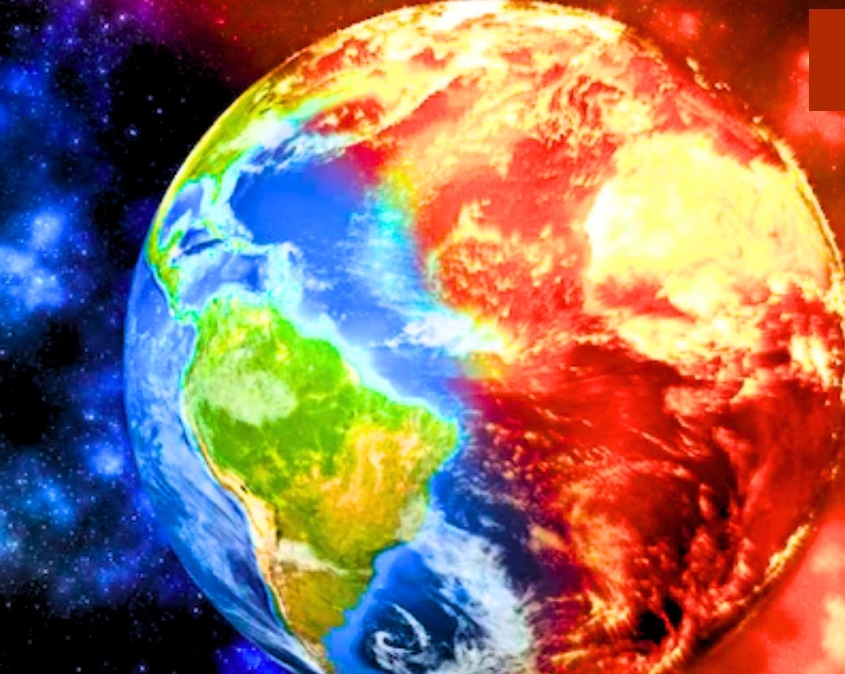For 3rd straight year Earth remains on a path to be 2.70C warmer
15 Nov 2024 11:04:55

BAKU (Azerbaijan) :
FOR the third straight year, efforts to fight climate change haven’t lowered projections for how hot the world is likely to get — and recent developments in China and the United States are likely to slightly worsen the outlook, according to an analysis on Thursday.
The analysis comes as countries come together for the 29th edition of the United Nations climate talks, hosted in Baku, Azerbaijan, where nations are trying to set new targets to cut emissions of heat-trapping gases and figure out how much rich nations will pay to help the world with that task.
But Earth remains on a path to be 2.7 degrees Celsius (4.9 degrees Fahrenheit) warmer than pre-industrial times, according to Climate Action Tracker, a group of scientists and analysts who study Government policies and translate that into projections of warming.
If emissions are still rising and temperature projections are no longer dropping, people should wonder if the United Nations climate negotiations known as COP are doing any good, said Climate Analytics CEO Bill Hare.
“There’s an awful lot going on that’s positive here, but on the big picture of actually getting stuff done to reduce emissions ... To me it feels broken,” Hare said.
The world has already warmed
1.3 degrees Celsius (2.3 Fahrenheit) above pre-industrial times. That’s near the 1.5-degree (2.7 F) limit that countries agreed to at 2015 climate talks in Paris. Climate scientists say the atmospheric warming, mainly from human burning of fossil fuels, is causing ever more extreme and damaging weather including droughts, flooding and dangerous heat.
Climate Action Tracker does projections under several different scenarios, and in some cases, those are going up slightly.
One projected track based on what countries promise to do by 2030 is up to 2.6 degrees Celsius, a tenth of a degree warmer than before. And even the analysts’ most optimistic scenario, which assumes that countries all deliver on their promises and targets, is at 1.9 Celsius, also up a tenth of a degree from last year, said study lead author Sofia Gonzales-Zuniga of Climate Analytics, one of the main groups behind the tracker.
“This is driven highly by China,” Gonzales-Zuniga said. Even though China’s fast-rising emissions are starting to plateau, they are peaking higher than anticipated, she said.
Another upcoming factor not yet in the calculations is the US elections. A Trump administration that rolls back the climate policies in the Inflation Reduction Act, and carries out the conservative blueprint Project 2025, would add 0.04 degree Celsius (0.07 Fahrenheit) to warming projections, Gonzales-Zuniga said.
‘Honour commitments’
BAKU,
Nov 14 (PTI)
BASIC countries, including India, have asked developed countries to honour their commitments to provide climate finance rather than “diluting obligations” and rejected attempts by the rich nations to shift their financial responsibilities during negotiations at the ongoing COP29. As the annual climate change summit entered the fourth day on Thursday, Brazil, South Africa, India and China (BASIC) also reiterated the need for full and effective implementation of the Paris Agreement 2015, a legally binding international treaty. India, Egypt, and the Independent Alliance of Latin America
and the Caribbean also called for clear pathways to convert financial pledges into binding contribution agreements. Through the negotiations on Wednesday and Thursday, the G-77/CHINA grouping that also includes India called for a balanced New Collective Quantified Goal on climate finance that is responsive to developing countries’ needs.
The grouping also sought a technology implementation programme supported by the operating entities of the Financial Mechanism.
The developed countries have emphasised the importance of increasing global climate ambition and have called for all nations, including emerging economies, to enhance their net-zero targets and implementation efforts.
However, these rich nations are facing criticism for not fully delivering on their own commitments, particularly regarding climate finance and support for developing countries.
In response, India, along with Brazil, South Africa and China as part of BASIC bloc, reiterated the need for full and effective implementation of the Paris Agreement.
“The BASIC bloc rejected attempts by developed countries to shift their financial responsibilities,” multiple negotiators confirmed to PTI.
The poor, developing countries also asked rich, developed countries to honour their commitments to provide climate finance rather than “diluting obligations”, a negotiator from Brazil told PTI.
